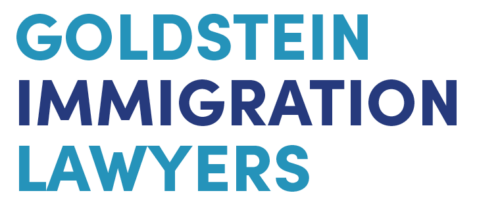Getting help with immigration can be very hard, especially when it comes to VAWA cases. It stands for the Violence Against Women Act, which helps people who have been hurt by someone they know. This article will explain how USCIS (U.S. Citizenship and Immigration Services) investigates these cases.
We will talk about what a self-petitioner is, how the investigation works, and why some petitions are denied. We will also give tips on how to prepare for a USCIS interview and how to get a green card after VAWA approval. Whether you are a self-petitioner, an immigration lawyer, or just want to learn more, this guide will help you. Let's dive into USCIS investigations in Violence Against Women Act cases!
What is VAWA and Who Qualifies as a Self-Petitioner?
The Violence Against Women Act (VAWA) is a law in the United States that helps people who have been hurt, like through domestic violence or stalking. So, what is a self-petitioner? It is someone who can ask for help from USCIS because they have been hurt by a spouse, parent, or child who is a U.S. citizen or a lawful permanent resident (LPR).
To qualify as a self-petitioner, you must have been hurt by someone you lived with. You also need to show that you have good moral character. If you are a spouse, you need to have entered your marriage in good faith, not just to get immigration benefits. Knowing these rules is the first step in applying for local VAWA lawyer help.
The Role of USCIS in VAWA Petitions
USCIS is the agency that checks and approves Violence Against Women Act petitions. They look at each application, investigate the claims, and decide if they will approve or deny it. USCIS wants to make sure that only eligible people get help through VAWA. They do this by looking closely at the evidence provided by the self-petitioner.
One part of USCIS’s job is to do background checks on the self-petitioner. This helps them verify who you are and check if you have a criminal history. How does USCIS investigate VAWA cases? They review the evidence you provide and may also ask questions during an interview. It's important to note that during this time, applicants may receive notifications stating that their case is being actively reviewed.
What is a Violence Against Women Act Visa?
The term "VAWA visa" is not official. However, the self-petitioning process offers important protection and support. This helps eligible individuals find safety and stability in the U.S. Commonly known as a VAWA visa, this special type of immigration help is for people who have been hurt by someone they know.
So, what is VAWA immigration? It’s the process that allows eligible people to get help under the Violence Against Women Act law. If you are a VAWA self-petitioner, you can apply for this visa, which lets you stay in the U.S. without needing your abuser's support.
Under the Violence Against Women Act (VAWA), certain victims of domestic violence, sexual assault, or stalking can apply for immigration benefits without needing a petition from their abuser.
Key Points:
- VAWA self-petitioners can be spouses, children, or parents of U.S. citizens or lawful permanent residents (LPRs) who have suffered abuse.
- This process allows them to apply for legal status in the U.S. independently.
- If approved, they can obtain a green card and eventually apply for U.S. citizenship.
How Does Violence Against Women Act Work?
How does the Violence Against Women Act work? The process lets people who qualify ask for help on their own, without needing their abuser’s help. This is really important for victims who might be scared to ask for help. When you send your petition, USCIS will check your application and evidence. Your petition is private, so USCIS won’t tell your abuser that you applied.

How Does USCIS Investigate VAWA Cases?
USCIS investigates VAWA cases by looking closely at the evidence you provide. This includes documents and any other proof you have that shows you were abused. They also check your background to confirm your identity and see if you have a criminal record. Sometimes, they may even interview you to ask questions and check if your story is true. The investigation can take time, so it’s important to give USCIS clear and complete information. Knowing how USCIS investigates VAWA cases can help you prepare for your application.
@joshisimmigration Think you need a police report to win your VAWA case? You don’t. Many immigrants believe they must stay in an abusive relationship just to keep their green card, especially if they don’t have a police report. This is one of the biggest myths about VAWA (Violence Against Women Act). Here’s the truth: You do not need a police report to file or win a VAWA petition. We’ve helped countless immigrants successfully get their green card through VAWA with no police involvement just a credible and detailed personal statement. Immigration wants to hear your story, not just paperwork. You deserve to live free from abuse and still get your green card. Contact us if you’re in a difficult situation and want to understand your options. #immigrant #vawa #greencard #immigrationlawyer ♬ original sound - Josh Goldstein, Esq.
Documentation and Evidence Requirements
To get help under VAWA, you must show enough proof to back up your claim. This means providing documents that prove you were abused. You might need police reports, court papers, medical records, and other important papers. These should show clearly that you were a victim of abuse.
You can also ask who know you to write letters (called affidavits) that talk about what you went through. This can be from friends, family, or professionals who can help support your case. Make sure to organize your evidence so it’s easy for USCIS to review. Remember, it’s your job to prove you are eligible for help.
The Importance of Credible Evidence
Providing believable evidence is very important in a VAWA case. USCIS will look carefully at the evidence you give to see if it’s credible. Credible evidence is reliable and can be believed. It should support your claim of abuse. If your evidence is confusing or unclear, it could lead to problems with your case.
So, make sure all the proof you give is strong and supports your story.
Background Checks and Interviews
When you apply for VAWA, USCIS will do background checks on you. This helps them confirm who you are and check for any criminal history. The background check looks at different databases for any criminal records.
Sometimes, USCIS may want to talk to you in an interview. This is to check if your story is true and to see the evidence you provided. During the interview, you might be asked questions about your relationship with your abuser, the abuse you faced, and your life in the U.S. Be honest and consistent when answering. If there are any differences in your story, it could affect your case.
Common Reasons for VAWA Petition Denials
Violence Against Women Act petitions can be denied for several reasons. One common reason is not providing enough proof. If you don’t give enough evidence to show that you were abused, USCIS may deny your petition. Another reason for denial is not meeting the eligibility rules. You need to meet specific requirements to qualify for VAWA. If you don’t meet these rules, you may be denied.
Sometimes, having a serious criminal record can also lead to denial. USCIS might deny your petition if they find any differences in your application or during the interview. Knowing these common reasons for Violence Against Women Act petition denials can help you avoid mistakes and improve your chances of getting approved.
After Approval or Denial: What’s Next?
Once USCIS decides about your Violence Against Women Act petition, you will receive a notice. If your petition is approved, you will get a VAWA visa. This visa allows you to stay in the U.S. legally. But, getting a Violence Against Women Act petition approved does not mean you automatically get citizenship. So, when can I apply for citizenship after my visa? After getting a VAWA visa, you can apply for a green card and, later on, for citizenship after meeting the necessary requirements.
If your petition is denied, don’t give up. You can still appeal the decision or file a motion to reopen or reconsider your case.

If Approved: Path to US Citizenship
After your VAWA petition is approved, you can apply for a green card. This is the next step toward becoming a U.S. citizen. After getting a green card, you must wait for a certain time before applying for citizenship. This waiting time depends on your situation.
During this time, it’s important to keep meeting the eligibility rules. This means avoiding any criminal activity and continuing to qualify for VAWA. After waiting, you can apply for citizenship. This includes filling out an application, passing a citizenship test, and taking an oath of allegiance.
If Denied: Appeals and Motions
If your VAWA petition is denied, you have the right to appeal. An appeal means you ask USCIS to look at the decision again. You can also file a motion to reopen your case. This means asking USCIS to check your case again with new facts or evidence. You can also file a motion to reconsider. This means asking USCIS to look at the decision again based on legal reasons.
If your petition is denied, remember to act quickly. There are strict deadlines for appeals and motions.
Preparing for a USCIS Interview in a VAWA Case
If USCIS asks for an interview, it’s very important to prepare well. The interview is your chance to prove your information is true. Before the interview, review your VAWA petition and the documents you submitted. Be ready to answer questions about your situation and the abuse you faced.
Get the VAWA Support You Need—Contact Us Today!
In conclusion, you are not alone on this journey. If you need assistance, don't hesitate to contact our US immigration lawyer Los Angeles. We’re here to provide valuable guidance and support for yourViolence Against Women Act case. Additionally, staying informed is key—visit USCIS's official website for the latest updates on Violence Against Women Act policies and laws. Let us our VAWA immigration lawyers help you navigate this process with confidence!
Posted in: Blog
